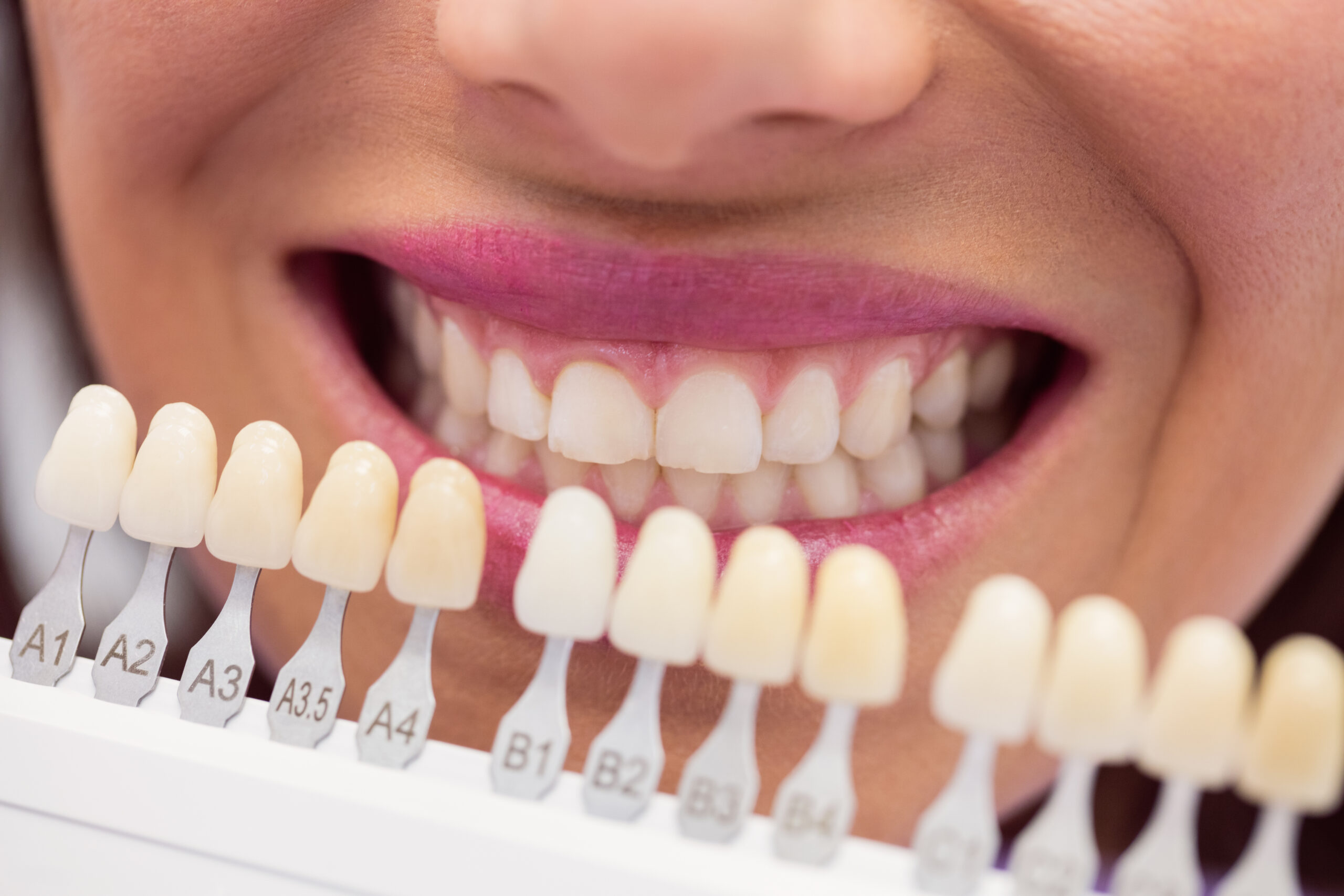Maintain Consistent and Proper Oral Hygiene
Keeping teeth clean is the most basic yet essential step in maintaining teeth whiteness. Brush teeth at least twice a day using a whitening toothpaste that contains gentle polishing agents and stain removers. Avoid overly abrasive products, as they can wear down enamel and cause sensitivity. Make sure to brush for a full two minutes reaching all tooth surfaces. Flossing daily is just as important—it removes food particles and plaque between teeth that brushing alone can’t reach Leftover debris in these areas can cause discoloration over time. Using an alcohol-free antibacterial mouthwash once or twice a day can further help eliminate bacteria and keep breath fresh while protecting against staining.
Avoid or Limit Stain-Causing Foods and Beverages
After whitening, your teeth can become more porous and susceptible to staining—especially within the first 48 hours. At Solitaire family dentistry, we ask our patients to follow WHITE DIET for the first 48 hrs after whitening. White Diet includes anything which is white or light in colour and non acidic. Examples of these include Milk, Rice, Cauliflower, Pasta, eggs, potatoes, yoghurt, bread, oatmeal, cheese We ask our patients to be cautious with foods and drinks that are deeply pigmented. Drinks to avoid include coffee, tea, red wine, cola and foods to avoid include dark chocolate, dark berries, soy sauce, balsamic vinegar, and tomato-based sauces In addition curries with turmeric and paprika spices must be avoided. If consumed, rinse the mouth with water immediately afterward or use a straw to minimize contact with the teeth It is also wise to brush about 30 minutes after eating these items (brushing immediately can harm softened enamel) Additionally, avoid tobacco products—both smoking and chewing tobacco—as they are among the leading causes of long-term tooth discoloration and can rapidly reverse whitening results.
Avoid Extremely Hot or Cold Foods Right After Whitening
Immediately after a whitening treatment—especially an in-office one—teeth may be more sensitive than usual. During this period, avoid consuming extremely hot or cold items such as ice cream, hot soups, or iced drinks This not only helps reduce discomfort but also prevents possible damage to temporarily weakened enamel. Give teeth at least 24 to 48 hours to rehydrate and stabilize before resuming normal diet.
Drink Plenty of Water, Especially after Meals.
Drinking plenty of water throughout the day, especially after meals or after consuming staining foods, helps rinse away pigments before they settle on the teeth. Water also helps neutralize acids in mouth that can weaken enamel and make teeth more vulnerable to staining. Chewing sugar-free gum after meals can also stimulate saliva production, which naturally helps clean the teeth and keep them shiny.
Use Whitening Touch-Up Treatments Periodically
Teeth whitening isn’t permanent and its effects typically last 6 months to 2 years, depending on your lifestyle. To keep teeth white, consider using at-home touch-up treatments like whitening strips pens or custom trays every few months. Always follow the manufacturer’s instructions to avoid overuse which can lead to tooth sensitivity or enamel erosion. Dental clinics in KPHB like Solitaire Family Dentistry offers at-home trays with whitening gel as an extension of in-office whitening procedures, frequently for maintenance or to obtain even more brightening. Following an in-office procedure, dentists may supply custom-fit trays and gels to be used for touch-ups or to gradually improve results; nevertheless, you should always follow your dentist’s precise instructions regarding gel concentration and wear time.It is a good idea to check in with the dentist before doing repeat treatments to ensure enamel is healthy enough for whitening.
Get Regular Professional Dental Cleanings
Visiting dentist every 6 months for professional cleanings is essential for keeping teeth white and healthy. A dental hygienist can remove tartar and stubborn surface stains which regular at-home brushing and flossing can’t eliminate. Regular check-ups also help identify early signs of decay, enamel erosion, or gum disease—all of which can negatively affect the appearance of smile. If you’ve had your teeth professionally whitened, your dentist can also suggest a custom maintenance plan based on your results and lifestyle habits.
Avoid Eating or Drinking After Nighttime Brushing
A simple yet effective tip: After brushing teeth at night, try not to eat or drink anything besides water until the next morning This gives teeth a break from acids, sugars, and staining agents while sleep. It also reduces the risk of plaque buildup overnight, which can dull teeth over time. Consider using a fluoride rinse before bed to strengthen enamel and boost protection. Manual brushing works—but an electric toothbrush is significantly more effective at removing plaque and surface stains. Many models also come with a built-in timer and pressure sensor to ensure brushing correctly.
Natural foods for teeth whitening:
Incorporating certain natural foods into diet can gently help whiten teeth over time. For example, strawberries are rich in malic acid, a natural enzyme that may help remove surface stains and brighten your smile. Similarly, pineapple contains bromelain, an enzyme that can help break down plaque and reduce discoloration. In addition, eating crunchy fruits and vegetables like apples, celery, and carrots can stimulate saliva production and act as a natural scrub for teeth, helping to remove food particles and surface stains. These foods not only support oral health but can also contribute to a cleaner, whiter appearance when consumed regularly.
Note:
Maintaining a white, radiant smile takes more than just one whitening session. Daily habits like drinking coffee, tea, or soft drinks can gradually dull your results a quick maintenance visit at Solitaire Family Dentistry, KPHB, Hyderabad can help refresh your smile and keep it shining longer.
Book your appointment today and keep your smile at its brightest!

